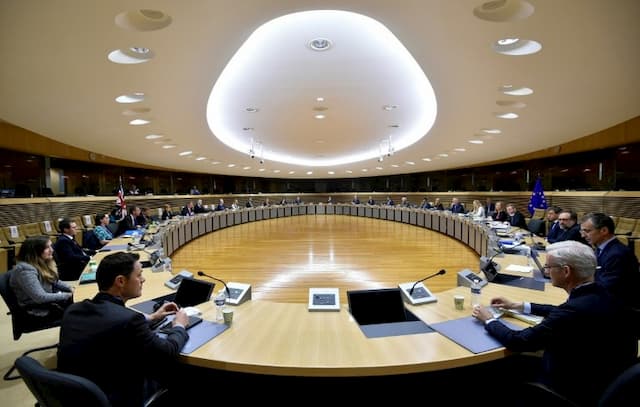Brexit: Negotiations Resume in London after a Difficult Week in Brussels

Negotiations between the UK and Europe to reach a post-Brexit trade deal resume on Monday, but the chances of reaching a compromise are dwindling.
Negotiations between the United Kingdom and Europe to reach a post-Brexit trade agreement resume Monday 6th July 2020 in the British capital, but the chances of reaching a compromise are diminishing, as the deadline set by London is getting closer.
Britain welcomes European negotiator Michel Barnier on Monday after the first round of interviews the previous week in Brussels, which the two sides had ended a day early due to “serious differences”, announced Mr Barnier. His British counterpart, David Frost, had spoken to him of “significant differences”.
Leaving the EU on January 31st after 47 years of a stormy marriage, the United Kingdom is now negotiating with Brussels to try to establish an advantageous commercial relationship with the European bloc at the end of the transition period, set for 31st December.
The discussions have so far not allowed real progress as the deadline is fast approaching, and with it, the risk of a devastating “ no deal ” for economies already very weakened by the pandemic of new coronavirus.
The 27-nation bloc “should prepare for the possibility of an agreement not being reached,” warned German Chancellor Angela Merkel, taking over from the EU presidency on Wednesday.
This outcome frightens British companies, who want to be informed as soon as possible of the possibility or not of an agreement, in order to promptly launch an expensive emergency plan in the event of a “no-deal”.
Prime Minister Boris Johnson wants to be fixed as early as July on the possibility of this agreement, while Europeans are targeting the month of October, believing that this leaves enough time for member states and the United Kingdom to ratify the treaty on their new relationship, which would take effect on January 1st, 2021.
Litany of disputes
A few weeks before the deadline set by the Conservative Prime Minister, the differences between the two parties remain significant.
London thus refuses to accept that future commercial disputes fall under the jurisdiction of the European Court of Justice. The United Kingdom also wants a much larger share of the fishing areas it currently shares with the bloc of 27 to be reserved for it.
The other stumbling block in the negotiations concerns the UK’s margin of autonomy compared to European standards in terms of state aid to the economy, the environment and labour law.
The negotiations which will open on Monday in London will try to speed things up, after a difficult week in Brussels and a first round of discussion which had taken place in the spring by videoconference, due to the epidemic of new coronavirus.
If the two parties still cannot agree, only the rules of the World Trade Organization (WTO), with their high customs duties, would apply from January 2021 to trade relations between these former partners.
Enjoyed this? Get the week’s top France stories
One email every Sunday. Unsubscribe anytime.


